On November, 4-6, 2015 the open lectures of the senior researcher of Raoul Wallenberg Institute of Human Rights and Humanitarian Law (Lund, Sweden), Doctor of Law Alejandro Fuentes, were held at Polotsk State University.
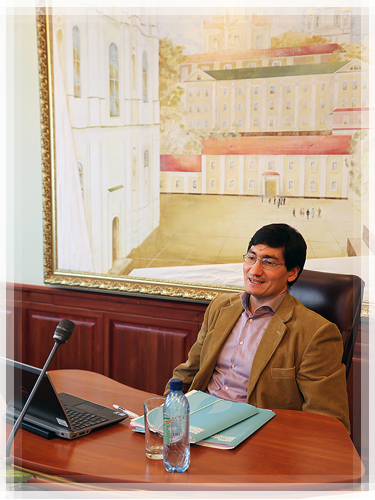
This is the second visit for doctor Fuentes at our university. Students, undergraduates of Law faculty and also lecturers had a chance to take part in a 3-day lection course in which theoretical and practical aspects of two regional systems of human rights protection (European and inter-American) were introduced. Apart from that, all the participants had a possibility to develop and improve their language competence in the sphere of professional communication. Lectures were read in English and presupposed the active communication between the lecturer and the audience.
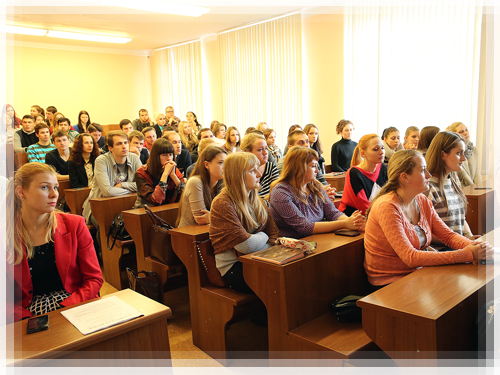
The final day of doctor Fuentes’ program was ended up with his participation in the workshop «Methods of certain aspects of the inclusion of human rights problematic in teaching of juridical disciplines» where the participants of the meeting discussed actual problems of content and methods of teaching, shared their experience in the organization of the distant form of teaching and also became familiar with the system of higher education in Sweden.
During the visit doctor Fuentes discussed with the administration of Law Faculty the perspectives of further cooperation between Polotsk State University and Raoul Wallenberg Institute of Human Rights and Humanitarian Law.
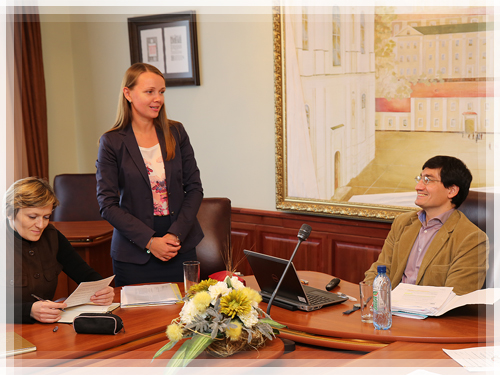
At the end of the interview doctor Fuentes told about himself and his work, shared his opinion about our university and told about the perspectives of the cooperation development between PSU and Raoul Wallenberg Institute.
The interviewer: Mr. Fuentes, we are very glad to see you. Can you tell us about yourself, your career, professional interests and Raoul Wallenberg Institute of Human Rights and Humanitarian Law.
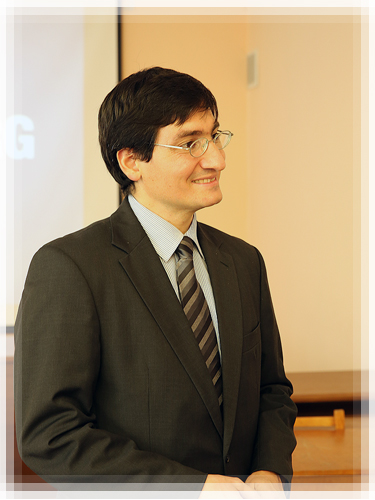
A.Fuentes: Thank you very much! It’s a pleasure to be here. I came here for the second time. I’m glad to meet the students. Teaching culturally-different audience is an important part of my international career.
I teach not only in Lund but also take part in the development and implementation of international programs. That is why I am here, in Belarus.
Here I don’t only teach, but also learn something new. I learn about cultural differences and various approaches of what happens in this part of the world. I become familiar with all possible methods of teaching which lecturers apply here, discuss them with lecturers, share the experience. That’s a very enriching process. And this is the main direction of Raoul Wallenberg Institute activity. We share our knowledge and practical experience with others.
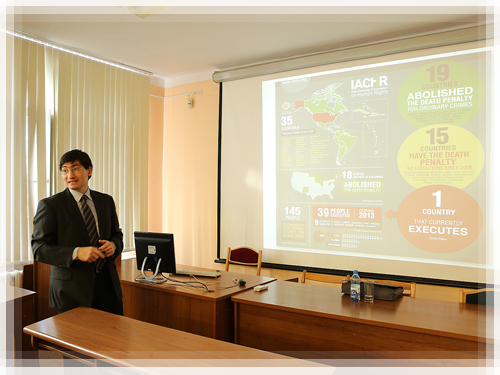
I want to support the students of your university who would like to study or work abroad. Language is not a barrier. And I encourage everybody to acquire this tool. Nowadays English is the common language, and that is something that will not change. If any of students would like to start an international carrier, the first thing to do is to study English. And, of course, they have to study hard. They can also contact us, at Raoul Wallenberg Institute. We will be more than happy to provide them with support.
The correspondent: You’ve visited many universities all over the world. What do you think about Polotsk State University, Law Faculty, its staff and students?
A.Fuentes: It’s a very important, but still complicated question. I’ve spent here just a couple of days, but I have a very good impression! I have high respect to the colleagues, starting from the dean and the others. They have something that is very important for teaching. And this is curiosity. They want to learn more. They are professionals and they know a lot, but they understand that there’s the space for the development.
Your students are more or less active. I’m very glad how they work during the class. Yes, there is a language barrier but we try to overcome it. The university has very good facilities. But of course, everything could be improved! Good teachers, good facilities – everything that we need for qualitative education. We will also contribute to encourage it.
The correspondent: Is your Institute planning further cooperation with Law faculty of Polotsk State University?
A.Fuentes: I definitely think that our collaboration has wide possibilities, because there’s the will between both sides. Right now we are exploring the possibilities of expanding our partnership. If I’m here it means the cooperation is on going. So we should work on that. It is not only us coming here from Lund. Your teachers could also come to Lund to discuss pedagogic, engage teaching experience and methods of research. It’s also connected with students. They have a possibility to take part in our annual regional summer course for Human Rights. My colleagues are working on that.
The correspondent: Thank you very much for the interview, Mr Fuentes!
A.Fuentes: It’s a pleasure to be here. Yesterday I visited all parts of the university. That was a marvelous excursion! I like your city and your country. People are hospitable. I feel like home. Thank you for that!
Vladimir Filipenko, the correspondent